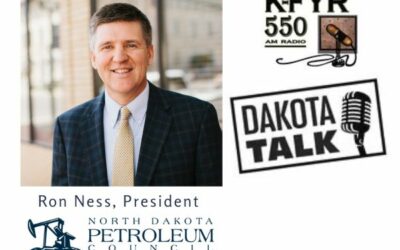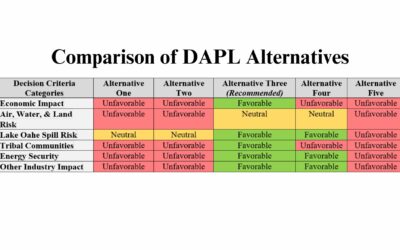
NDPC responds to Biden’s Methane Rules
The new methane rules are another step by the Biden Administration to impose stringent and unrealistic targets on the domestic energy industry. U.S. producers are global leaders in emission reduction and continue to make significant advancements each year. However, instead of recognizing these efforts, the current administration seems to favor importing oil and gas from countries with less stringent environmental standards, undermining U.S. energy security and global emission reduction efforts. Despite these challenges, the oil and gas industry has already demonstrated a strong commitment to lowering methane emissions. In the Williston Basin, methane emissions have decreased by 30% since 2018, and we’ve recently worked with the North Dakota legislature to develop an incentive program aimed at further reducing flaring across the Bakken. We have reduced methane emissions in all major producing regions across the U.S. by 66% since 2011, which further demonstrates the industry’s commitment to environmental stewardship.
The North Dakota Petroleum Council has significant concerns about the new methane emission rules. The industry is currently navigating through the nearly 1,700 pages of highly technical and complex regulations, which, upon initial review, suggest substantial costs and operational burdens. The new rules, which include the elimination of flaring, could lead to the abandonment of some wells, posing a particular challenge for certain operations. Small marginal wells make up a large portion of production across the industry. Operators will have to weigh out the costs of compliance to determine if it is economically feasible to continue operation on these wells.
The introduction of “third-party” monitoring is especially concerning for the industry. This provision could potentially allow groups opposed to oil and gas production to influence and escalate actions against industry operations, further complicating the regulatory landscape and increasing constraints on the industry’s ability to support U.S. energy independence.
Small to mid-size companies will likely face significant financial and operational challenges under the new regulations. The stringent requirements and potential costs associated with compliance may be disproportionately burdensome for these smaller operators. This situation bears a striking resemblance to the challenges faced by small American family farms, which have increasingly been consolidated into larger operations due to regulatory and economic pressures. The potential for similar consolidation in the oil and gas industry could lead to reduced competition and a shift in the industry’s landscape. These rules not only affect the operators but could also have broader long-term economic implications, including impacts on local economies and job markets in the region.
Other News
Ron Ness Guest Host on KFYR 550 AM Radio’s “Dakota Talk” Show on February 19, 2024
Ron Ness, President of the North Dakota Petroleum Council, was the guest host for the KFYR 550 AM Radio talk show "Dakota Talk" on Monday, February 19, 2024. Dakota Talk Guest Line-Up First Hour: Dale Hoerauf, Director of Career and Technical Education and Director of...
The Future of Oil and Natural Gas Industry in North Dakota Is Bright
OP-ED BY RON NESSWe all benefit from a strong oil and natural gas industry. The billions of dollars in taxes and royalties paid to the State of North Dakota each year pay for education, infrastructure, and social services across our great state. In fact, over 50% of...
NDPC Comments on Dakota Access Pipeline draft Environmental Impact Statement
The North Dakota Petroleum Council (NDPC) has submitted comment to the U.S. Army Corps of Engineers (USACE) on the draft environmental impact statement (EIS) for the Dakota Access Pipeline (DAPL) that was issued on September 8, 2023. DAPL serves as a vital connection...



